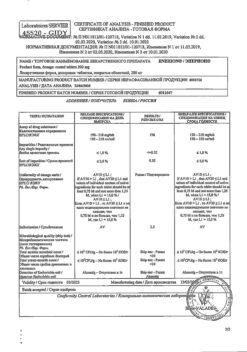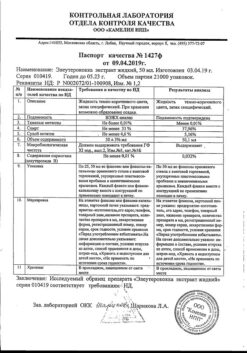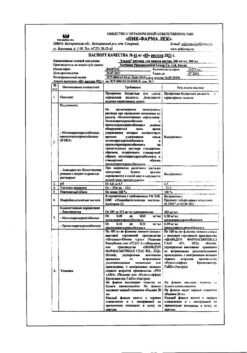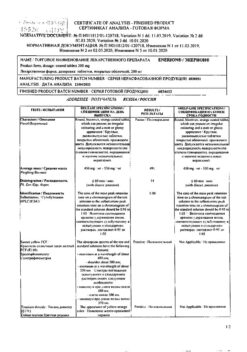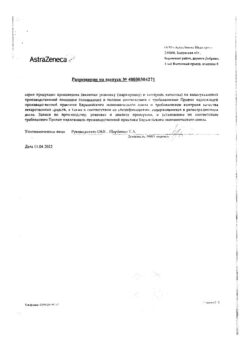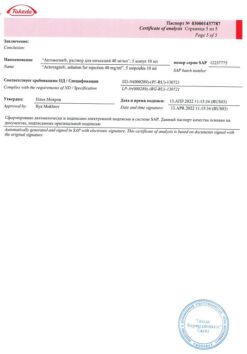No products in the cart.
Ultra-D Vitamin D3 25 mcg (1000 IU), 360 pcs.
€67.61 €58.59
Description
As a dietary food supplement – an additional source of vitamin D.
Composition
Composition
1 tablet contains:
Cholecalciferol (vitamin D3) – 25 mcg (1000 IU).
Auxiliary Ingredients:
xylitol sweetener (E967), sorbitol sweetener (E420), hydroxypropyl cellulose thickener (E463), anti-caking agent magnesium fatty acid salts, antioxidant alpha-tocopherol (E307), palm oil, modified starch carrier (E1450), sucrose, sodium ascorbate antioxidant (E301), amorphous silicon dioxide (E551) anti-caking agent, raspberry flavoring, peach flavoring.
How to take, the dosage
How to take, the dosage
Special Instructions
Special Instructions
Do I need a blood test for vitamin D?
Yes, if your doctor recommends it; If you’re in a high-risk group for vitamin D deficiency (pregnant or nursing women, seniors (over age 60), people with limited sun exposure, dark-skinned people, people with obesity, gastrointestinal absorption disorders (Crohn’s disease, celiac disease, nonspecific ulcerative colitis, bariatric surgery, cystic fibrosis), those taking long courses of drug therapy (glucocorticoids, antiretroviral drugs, antifungal agents, antiepileptic drugs), in chronic renal and hepatic failure).
Can I take vitamin D without testing for blood levels of vitamin D?
Yes, you can. According to the Russian Society of Endocrinologists, the majority of the Russian population has an insufficiency or deficiency of vitamin D. This is explained by low content of vitamin D in food, the insufficient intensity of ultraviolet radiation in the population living above the 35th parallel (all of Russia) and insufficient time spent in the sun. The states of deficiency and insufficiency are recommended to correct with additional intake of vitamin D. According to the recommendations of the Russian Society of Endocrinologists, if there is no possibility to control the level of 25(OH)D, for long-term intake (more than 6 months) an adult doctor may prescribe a dose not higher than 4000 IU per day – for persons without risk factors; and not more than 10000 IU per day – for persons at risk of developing vitamin D deficiency.
If a doctor recommends a higher dose of vitamin D, is he correct?
The current recommendations of the Russian Society of Endocrinologists require a prophylactic intake of 1500-2000 IU per day to maintain optimal plasma vitamin D concentrations. In disorders of absorption or metabolism of vitamin D (eg, obesity), the daily dose should be increased 2-3 times. If deficiency or insufficiency of the vitamin is diagnosed, the doctor calculates the necessary dose of vitamin D depending on the severity of the disorders, and this dose may be significantly higher than the dose recommended to prevent deficiency.
Do I need to take vitamin D in the planning stages of pregnancy?
In these periods of a woman’s life, vitamin D is especially necessary for both the mother and the unborn child. In preparation for pregnancy, it is recommended to take pre-emptive or corrective doses (if a vitamin deficiency is detected). Hypovitaminosis D in these situations is subject to mandatory correction. If pregnancy occurs, the dosage of vitamin D intake is determined by the doctor.
Can I take vitamin D in kidney disease?
If kidney function is impaired, a doctor should be consulted about vitamin D use. According to international guidelines, vitamin D may be safely prescribed in the presence of kidney stones and nephrocalcinosis, but without concomitant calcium supplementation.
Synopsis
Synopsis
Vitamin D3, or cholecalciferol, is a biologically active substance, a fat-soluble vitamin. It enters the human body with food, but its content in food is low, and absorption is possible only in a healthy intestine. Most of the vitamin D must be synthesized in the skin under the influence of ultraviolet light, but with sufficient time in the sun and sufficient intensity of UV exposure.
According to epidemiological studies1 more than 80% of adults in Russia are found to have a vitamin D deficiency, and such a deficiency is noted in both summer and winter. Only 3.5% of Russian women have normal values of vitamin D levels.
The biological role of vitamin D is explained by the presence of specific receptors in more than 40 organs and tissues and the control of more than 200 genes.
The classic effects are related to the regulation of calcium-phosphorus metabolism: Vitamin D increases intestinal absorption of calcium and phosphorus, increases their reabsorption by the kidneys, promotes bone mineralization and elasticity, normalizes neuromuscular transmission, and prevents myopathies in the background of mineral metabolism disorders (manifested by muscle weakness, difficulty in walking, maintaining balance and tendency to fall).
Additional information
| Shelf life | 3 years. Do not use after the expiration date printed on the package. |
|---|---|
| Conditions of storage | Store in the original package in a dry place out of the reach of children, at a temperature not exceeding 25 ° C. |
| Manufacturer | Pharmia OY, Finland |
| Medication form | chewable tablets |
| Brand | Pharmia OY |
Related products
Buy Ultra-D Vitamin D3 25 mcg (1000 IU), 360 pcs. with delivery to USA, UK, Europe and over 120 other countries.



